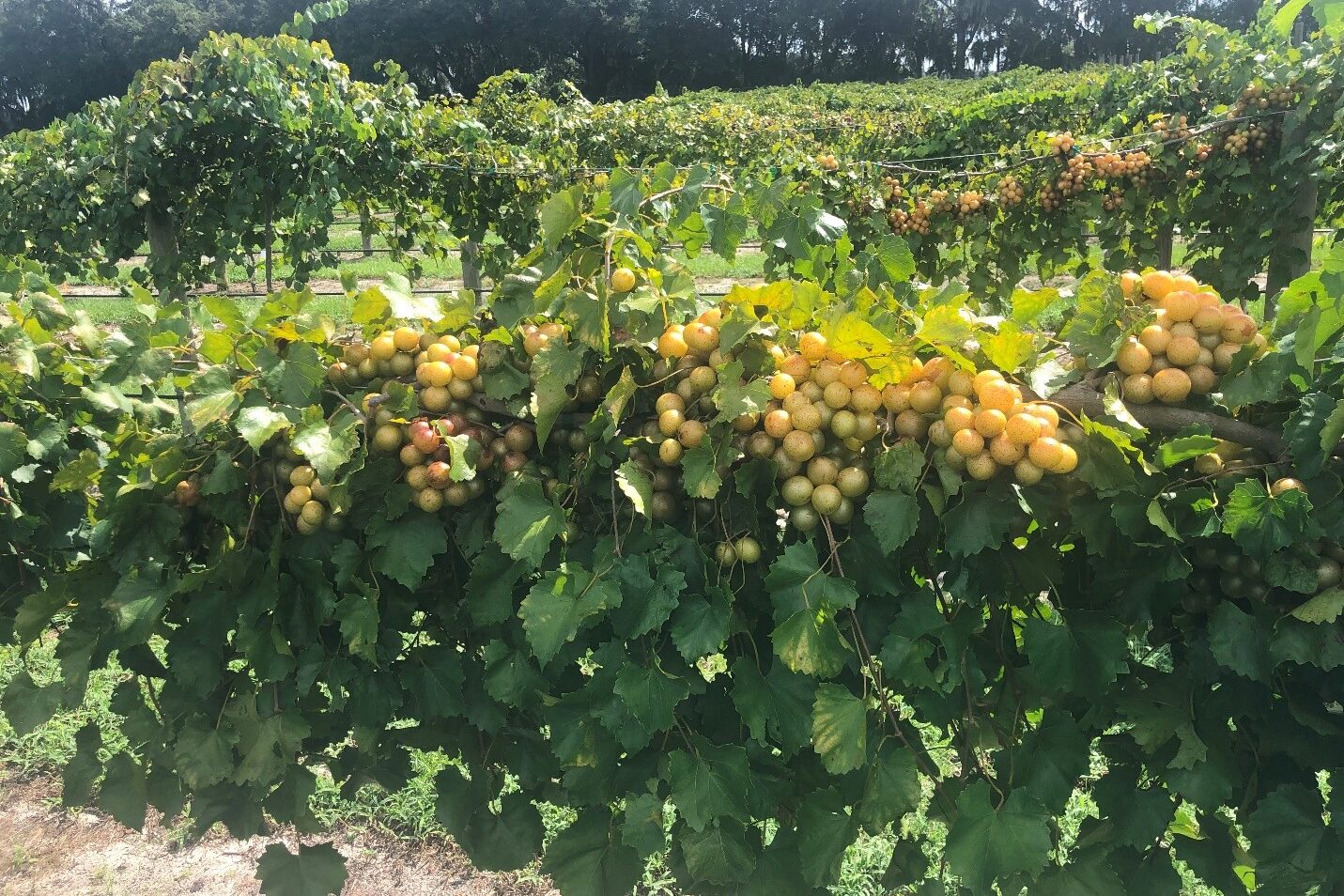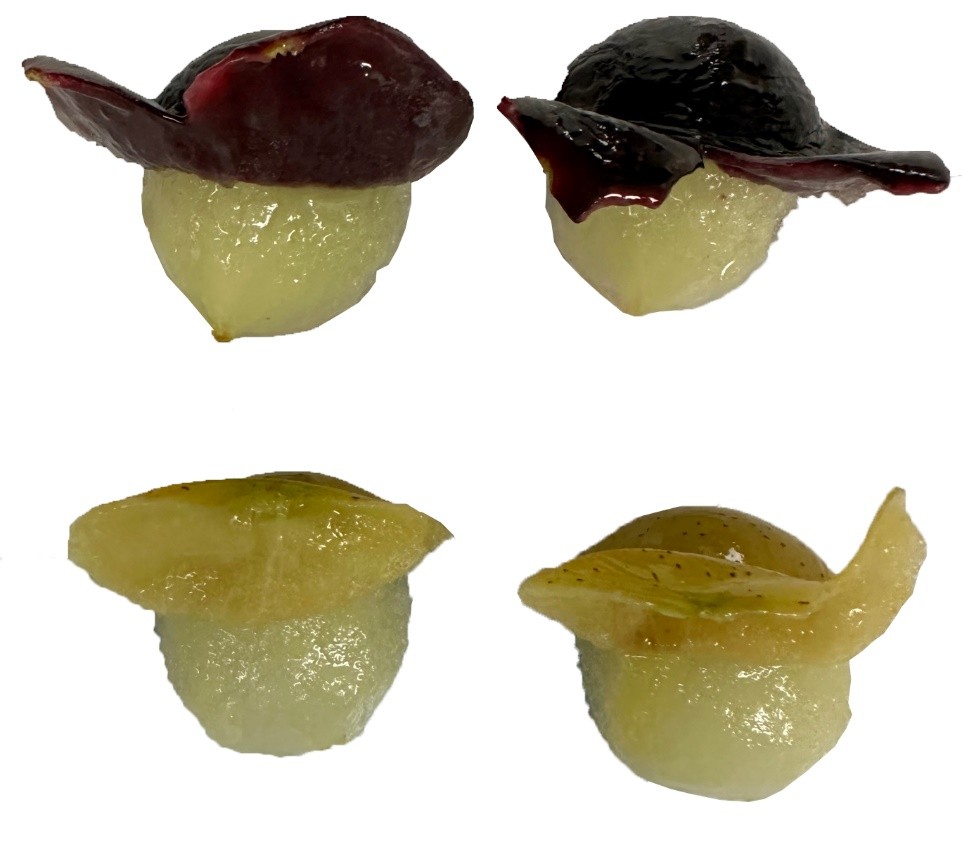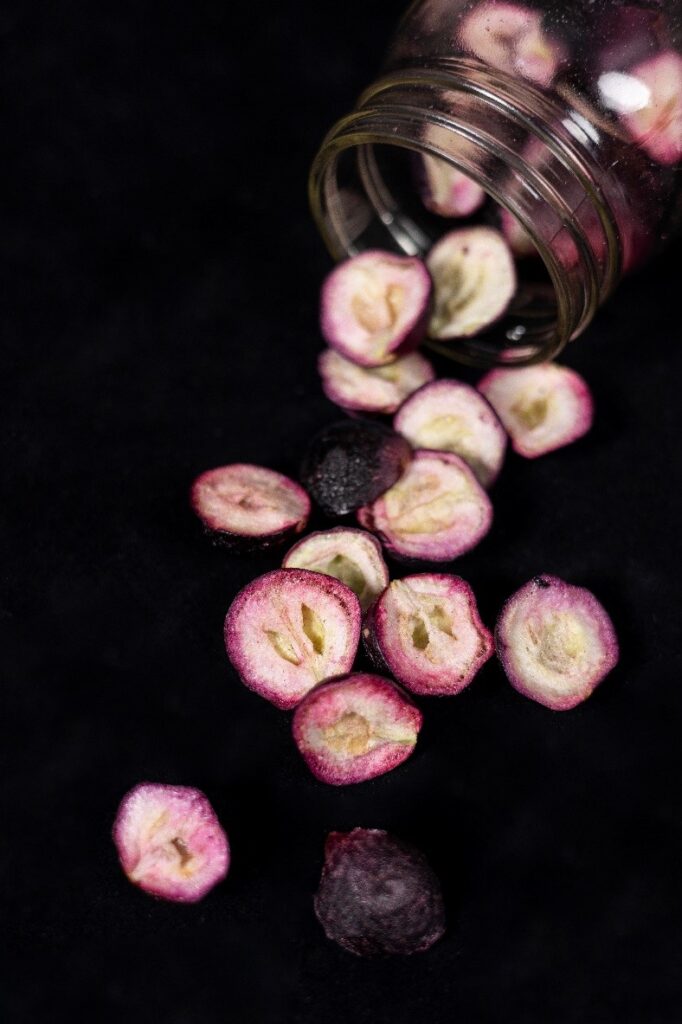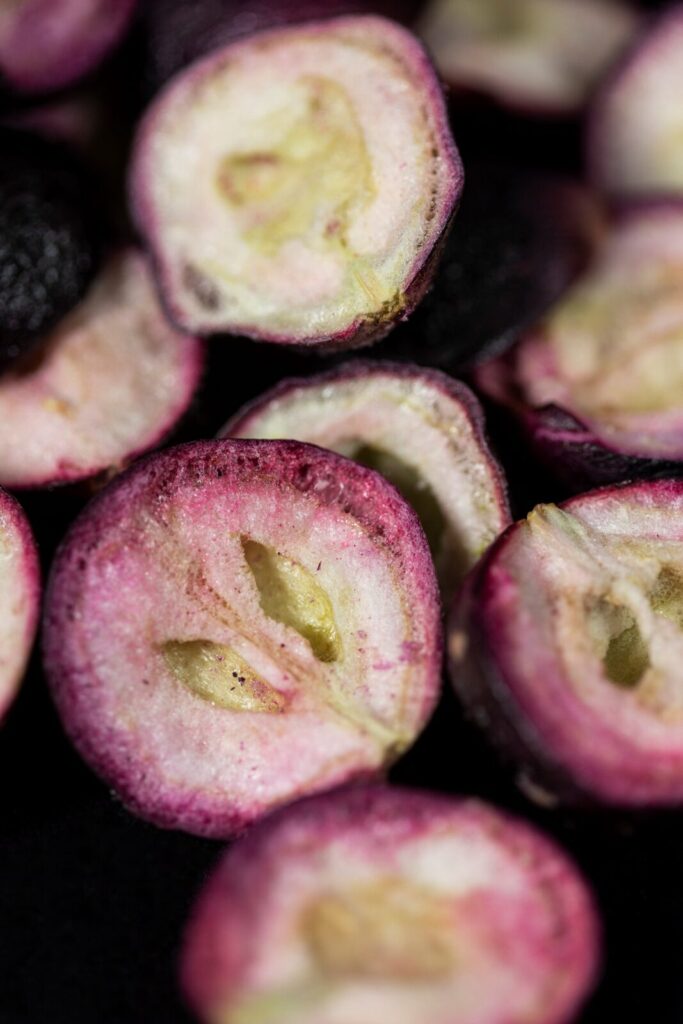Ali Sarkhosh, Associate Professor and Extension Specialist, Horticultural Sciences Department, University of Florida, Gainesville, FL 32611
Muscadine grapes are indigenous to North America and hold the distinction of being the first species of grapes cultivated in the United States. Their cultivation has a long history, particularly in the southeastern United States, where they thrive due to their remarkable adaptability to various environmental conditions, along with their superior fruit quality and characteristics suitable for winemaking.

Muscadine grapes are popularly enjoyed both fresh and in processed forms, such as juice, wine, and jam. Recent studies have underscored the health benefits of muscadine grapes, highlighting their rich content of beneficial phytochemicals. As a result, they are increasingly recognized by consumers as a nutritious food choice, thanks to their unique combination of bioactive compounds and antioxidant properties. However, the thick skins and seeds of muscadine grapes present some challenges for wider consumer acceptance.
This article seeks to inform readers about an innovative product derived from muscadine grapes that enhances accessibility and has the potential to diversify the food processing industry.
Muscadine fruit features a tough, leathery peel that is a fantastic source of antioxidants, dietary fiber, and flavonoids. This peel contains beneficial phytochemicals, including resveratrol, known for its antioxidant and anti-inflammatory properties. Furthermore, it houses several important compounds, such as anthocyanins and ellagic acid. Unfortunately, the skin is often discarded by consumers. Researchers at the University of Florida have investigated a novel technique aimed at improving the consumption of muscadine grapes. By utilizing freeze-drying technology, they have developed a method to transform muscadine fruit, including its peel, into a crunchy snack reminiscent of potato chips. This innovative approach not only enhances the fruit’s appeal to consumers but also retains its health benefits, making it a more attractive dietary option.
Researchers at the University of Florida have investigated a novel technique aimed at improving the consumption of muscadine grapes. By utilizing freeze-drying technology, they have developed a method to transform muscadine fruit, including its peel, into a crunchy snack reminiscent of potato chips. This innovative approach not only enhances the fruit’s appeal to consumers but also retains its health benefits, making it a more attractive dietary option.

Freeze-drying is a dehydration process that removes water by sublimating ice from the frozen material. This technique is especially beneficial for crops that contain heat-sensitive antioxidant compounds, such as tocopherols, ascorbic acid, carotenoids, and plant phenolics. In addition to prolonging the shelf-life of fruits by preventing microbial growth and slowing down lipid oxidation, freeze-drying is widely used in the food industry for the long-term preservation of various products. This technique is favored for its ability to maintain many quality attributes of fresh produce, including shape, appearance, color, flavor, texture, porosity, nutrients, and overall biological activity.
Freeze-drying muscadine fruit provides numerous benefits in preserving its valuable phytochemicals and antioxidants. Unlike traditional drying methods, this dehydration technique effectively maintains the fruit’s original structure, resulting in minimal distortion and reduced shrinkage. The low temperatures used in freeze-drying help retain essential vitamins and minerals, along with the fruit’s natural flavor and aroma. Consequently, freeze-dried muscadine fruit offers a crunchy berry that includes the peel, serves as a rich source of health-promoting compounds, and can be enjoyed as a nutritious and convenient snack option. Additionally, when stored in sealed containers, freeze-drying significantly extends the shelf life of muscadine fruit products at room temperature, enhancing their availability and accessibility throughout the year.


For more information about freeze-dried muscadines and our research, you can:
- Read the Extension article, Freeze-Dried Muscadine Grape: a New Product for Health-Conscious Consumers and the Food Industry
- Review the scientific manuscript, Freeze-Drying Does Not Affect Bioactive Compound Contents and Antioxidant Activity of Muscadine Fruit